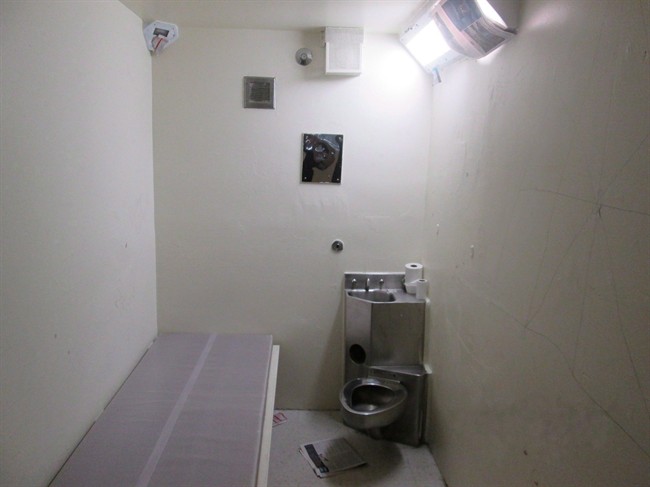TORONTO – The Canadian Civil Liberties Association is asking Ontario’s top court to impose a 15-day cap on solitary confinement for inmates and to bar the practice altogether for youth and other vulnerable groups.

The association says a lower Ontario court didn’t go far enough in ruling that isolating inmates for more than five days in a practice known as administrative segregation is unconstitutional because the system lacks proper safeguards.
It argues the judge erred by finding inmates in solitary confinement could be monitored and pulled from isolation if they show signs of harm.
In a hearing in Toronto on Tuesday, the association said knowingly exposing inmates to harm and then removing them when harm occurs amounts to cruel and unusual punishment.
Last December, Ontario Superior Court Justice Frank Marrocco gave the federal government a year to change its law, noting that doing so immediately could put inmates and staff at risk.

Get breaking National news
The deadline is Dec. 18 and the association says it will oppose Ottawa’s request for an extension, which is expected to be heard by the court of appeal this week.
The group says the federal government only introduced legislation that deals with solitary confinement last month, knowing it wouldn’t pass in time to meet the deadline.
It also says the bill fails to address the constitutional issues raised in the case.
A court in British Columbia also struck down the federal law earlier this year but went further than the Ontario court, ruling that indefinite solitary confinement of prisoners is unconstitutional and causes permanent harm.
That ruling also imposed a 12-month deadline for making changes.
The government is appealing in that case, saying it needs clarity from the court because of the differences between the two rulings.
Inmates are placed in administrative segregation to maintain security in the event an inmate poses a risk to themselves or others if no other reasonable alternative is available. They are to be released from administrative segregation at the earliest possible time, but no time limits have been set.
Meanwhile, disciplinary segregation is used to punish prisoners for violating prison rules for a maximum of 30 days.
Those in segregation are restricted to two hours outside their cells and cannot interact with others or access programs.







Comments
Want to discuss? Please read our Commenting Policy first.